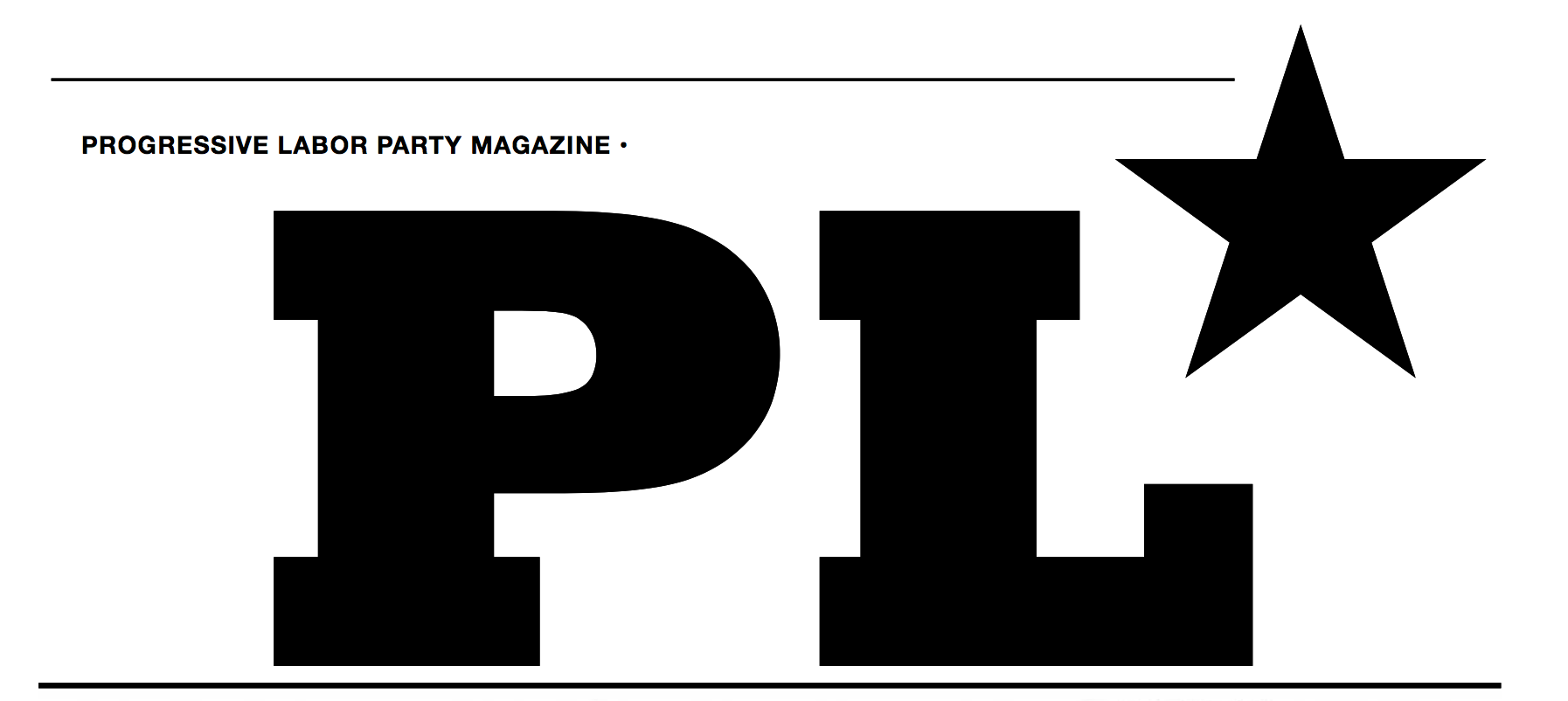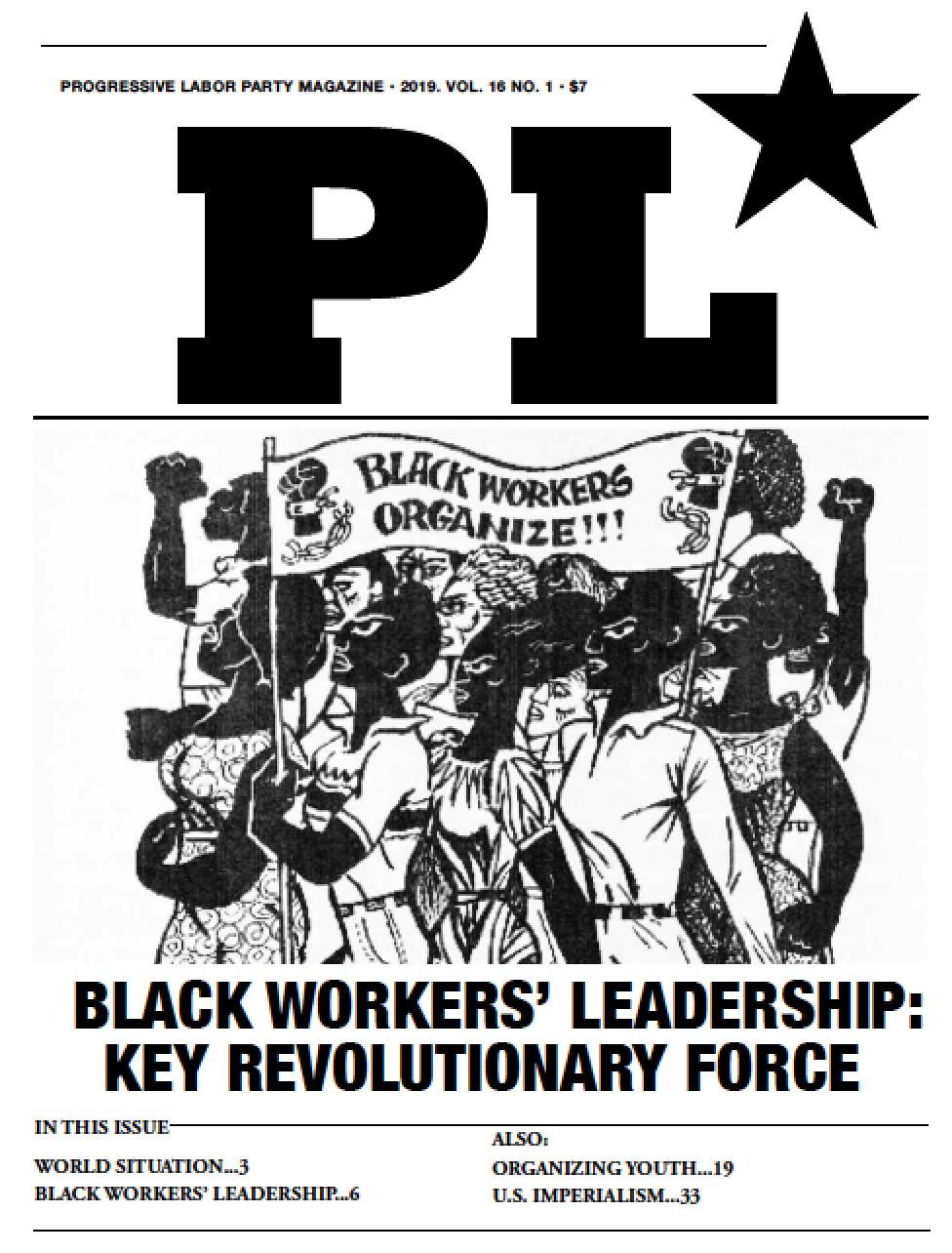KHASHOGGI CRISIS: CLASH BETWEEN FASCISTS
 Sunday, October 28, 2018 at 1:13AM
Sunday, October 28, 2018 at 1:13AM The apparent assassination of Jamal Khashoggi, the journalist critic of the most powerful capitalist boss in Saudi Arabia, highlights the declining imperialist power of the United States and its dependence on a corrupt and brutal Saudi ruling class. The Khashoggi affair also reveals Turkey’s ambitions to be the top Middle East power, in competition with the Saudi bosses—and the growing influence of Russia in the region. Driving all of these developments is the inevitability of inter-imperialist war.
Throughout the world today, capitalism is in a state of sharpening economic and political crisis. From Asia to Europe to the U.S. and Latin America, the bosses need more and more fascism to discipline their own class and to control and intimidate workers as they mobilize for the next global war. Only communist revolution can smash fascism for good and abolish the material basis for imperialist war, the competition for maximum profits.
On October 2, Khashoggi was seen on camera entering the Saudi consulate in Istanbul, where he needed documents for his upcoming marriage. With known ties both to members of the Saudi royal family and the Muslim Brotherhood, Khashoggi was no small-time dissident. He had allied himself with a section of the Saudi ruling class targeted by a 2017 purge by the thuggish Crown Prince Mohammed bin Salman (MBS). After his falling out with MBS, Khashoggi lived in exile in the U.S. while attacking the Saudi regime as a columnist for the Washington Post. He accused MBS of creating “a climate of fear and intimidation” (Washington Post, 9/18/17).
Turkey’s counter-attack, engineered by its own thug, President Recep Tayyip Erdogan, was to accuse the MBS regime of planning the murder. Since the journalist’s disappearance and reported dismemberment, Turkish police and intelligence sources have leaked a series of appalling details to the Turkish press. Media reports have implicated key members of the Saudi military and intelligence apparatus as Khashoggi’s killers. Set on using the incident to undermine MBS, Recep Tayyip Erdoğan is now demanding that Turkey, not Saudi Arabia, investigate and try the accused (NYT, 10/23).
Though Erdogan’s fascist regime in Turkey has been called “the world leader in jailing journalists” (2018 World Report, Human Rights Watch), it is feigning outrage at Khashoggi’s murder as a pretext to undermine Saudi Arabia. Though the two regional powers have significant economic ties, they also took opposing sides during the Arab Spring, with Turkey supporting Islamist political uprisings throughout the region and Saudi Arabia doing its best to squelch them (WP, 3/8). MBS has called Turkey one point of the “triangle of evil,” along with Iran and ISIS.
Russia courts Turkey to nix NATO
Meanwhile, Russia has mounted an effort since 2015 to bring Turkey’s rulers closer (Wall Street Journal video, 6/25). President Vladimir Putin’s strategy is to split off Turkey, the easternmost anchor of the NATO alliance, from the U.S.-led coalition. Turkey commands a chokepoint connecting the Black Sea to the Mediterranean. It also provides Russia with an alternative route for energy shipments to Europe, sidestepping a hostile Ukraine.
In December 2017, Turkey agreed to purchase the S-400 air defense system from Russia; four months later, it bought a Russian-made nuclear power plant (Bloomberg 7/11). Russia will build the land section of its Turkstream gas pipeline on Turkish soil, securing its access to European markets. In return, Turkey will get a $1 billion rebate on gas surcharges (Reuters, 5/26).
By contrast, the U.S. announced increased tariffs on Turkish imports last summer; a week later, Turkey replied in kind. The U.S. escalated the trade conflict by sanctioning high-ranking Turkish officials. But neither country appears ready to cut ties just yet. On October 21, Erdoğan released a statement reaffirming his “determination for the normalization and development of Turkey-U.S. cooperation in every area.” There is no honor among capitalist thieves, and traditional alliances will undoubtedly continue to shift as war gets closer.
U.S. rulers split on Mideast strategy
U.S. rulers seem deeply divided in their response to the Khashoggi debacle. Republican Senator Lindsey Graham called for sanctions against Saudi Arabia and referred to MBS as “toxic.” Various front-line capitalists, including JPMorgan Chase CEO Jamie Dimon, pulled out of an annual Saudi-hosted economic conference, forcing Treasury Secretary Steven Mnuchin to do the same (CNN, 10/18).
But with encouragement from his son-in-law and MBS cheerleader, Jared Kushner, U.S. President Donald Trump is desperately trying to salvage the Saudi ruler’s reputation (NY Times 10/19). Even as increasingly damning details of Saudi involvement emerge, Trump continues to defend MBS and a huge U.S. arms deal with Saudi Arabia. One thing is clear: The U.S. bosses will place their capitalist class interests above any fake commitment to “human rights.”
The conflicting response to the Khashoggi incident reflects broader disagreements over U.S. strategy in the Middle East. The rulers are split over how best to control the region: whether to give traditional allies Saudi Arabia and Israel free rein to butcher whomever they please, or to hedge their bets by playing both sides, as they did in the Iran-Iraq War in the 1980s (under Ronald Reagan) or by reaching a nuclear deal with Iran (under Barack Obama). Trump’s administration is pivoting back to the first of these options.
With U.S. power in the region on the wane after losing two wars and recently getting outflanked by Russia and Iran in Syria, the finance capital main wing of the U.S. ruling class cannot afford a divided front. And while Trump is a wild card whose private company “has been paid tens of millions by Saudi investors and its government” in business deals over the years (businessinsider.com, 10/16), the main wing has its own reasons to tread lightly in penalizing the MBS regime—namely, its need to keep Russia at bay. As he received “special attention” from the Saudi media at the conference in the Ritz-Carlton in Riyadh, a Russian fund manager close to Putin declared, “Saudia Arabia is a great partner for us” (NYT, 10/24).
For all the capitalist media’s dramatic appeals for “freedom of the press” and outrage over an extra-judicial killing, the Khashoggi story is really about the fight between U.S. and Russia for control over the region with the world’s largest cheap energy reserves. Workers must not be fooled into supporting one or another imperialist or local proxy in this fight. Our class interest is to expose the rulers’ intrigues. Our job is to lead the fight to take state power from their bloody hands through revolution for an egalitarian communist world.
*****
Saudi Arabia key to U.S. control in middle east
In the long run, despite any current tension, the U.S. has no real choice but to maintain its relationship with Saudi Arabia. U.S. bosses have planted their flag in Saudi Arabia since 1938, when Standard Oil of California (now Chevron) discovered oil there (CFR Website 5/12/17). In 1979, Zbigniew Brzezinski, former U.S. President Jimmy Carter’s national security adviser, proclaimed the “Carter Doctrine”: “An attempt by any outside force to gain control of the Persian Gulf region … will be repelled by any means necessary, including military force.” Even as the New York Times editorial board hypocritically criticized Trump’s attempt to prop up MBS, it admitted that the kingdom is “an important ally in a volatile part of the world, a major purchaser of American weapons and a powerhouse in global oil politics” (NYT, 10/19).
The U.S. needs Saudi Arabia as part of it strategy to isolate their common foe, Iran. On November 4, the U.S. is set to implement a second set of sanctions to penalize any countries doing business with Iran (Congressional Research Service, 9/26). With a steep decline in Iranian oil on the world market looming, the U.S. will be relying on the Saudi rulers to increase production and keep oil prices price down; to serve as a staging point for U.S. military actions; and to grant it legitimacy in the region.
Saudi Arabia has the largest military budget in the Middle East—more than $76 billion in 2017 (Center for Strategic and International Studies 3/13). With U.S. support, it cemented its regional leadership by assembling a coalition of Middle Eastern and African countries to wage brutal war in Yemen against Iran-backed rebels there. The war in Yemen resulted in mass deaths, displacement, and the worst cholera epidemic in history.
Beyond undercutting Iran and slaughtering thousands of civilians, the move helped Saudi Arabia to secure its southern border (Aljazeera 3/26/15). Next step: A Saudi plan to develop oil ports in Yemen’s southeast (Aljazeera 8/20).





 Progressive Labor Party (PLP) fights to destroy capitalism and the dictatorship of the capitalist class. We organize workers, soldiers and youth into a revolutionary movement for communism.
Progressive Labor Party (PLP) fights to destroy capitalism and the dictatorship of the capitalist class. We organize workers, soldiers and youth into a revolutionary movement for communism.




Reader Comments